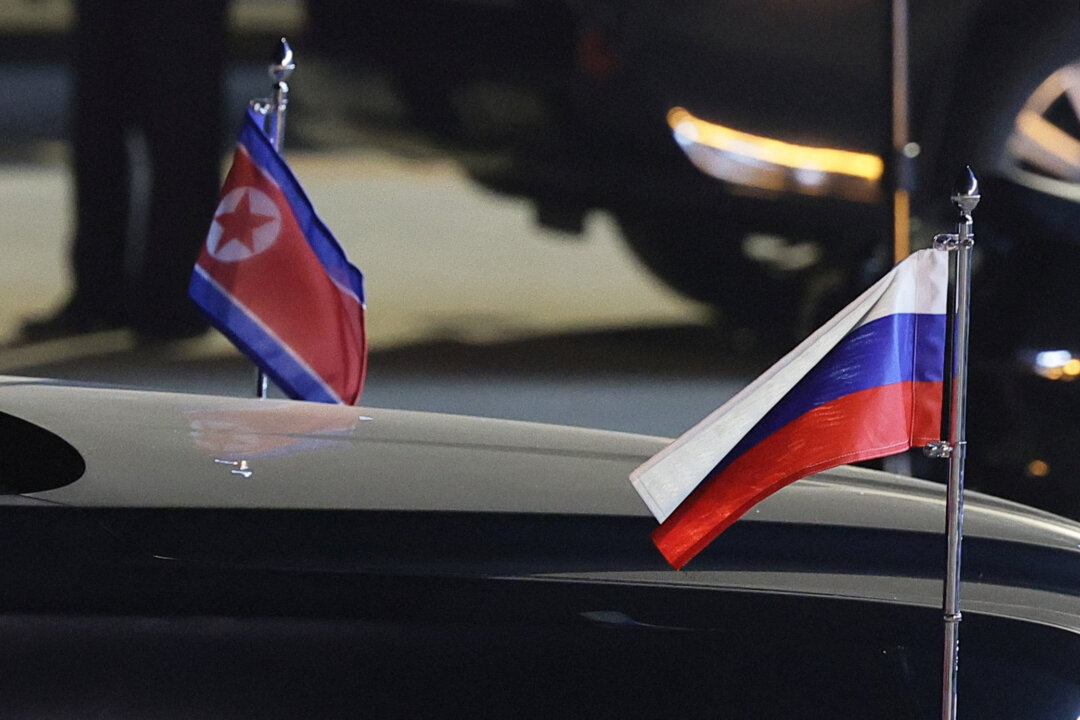The Treasury’s new sanctions target entities that allegedly support North Korea’s ballistic missile program and assist Russia’s war effort in Ukraine.
The Treasury Department’s Office of Foreign Assets Control on Dec. 16 imposed sanctions on a network of nine individuals and seven entities allegedly involved in providing military and financial support to North Korea.
The newly designated parties are accused of providing critical resources to support activities such as North Korea’s weapons tests and, more recently, its military assistance to Russia, according to a Treasury statement.
The Treasury alleges in the statement that North Korea has supplied Russia with more than 11,000 troops and large quantities of missiles and ammunition since October.
North Korea’s recent provocations, including an intercontinental ballistic missile test on Oct. 31 and multiple short-range ballistic missile launches in early November, are fueled by revenues generated through foreign-based workers and state-owned entities, according to the statement.
“The Kim regime’s continued provocative actions—including its most recent ICBM test and its deepening military support to Russia—undermine the stability of the region and sustain Putin’s continued aggression in Ukraine,” Acting Under Secretary of the Treasury for Terrorism and Financial Intelligence Bradley T. Smith said in a statement. “The United States remains committed to disrupting the illicit procurement and facilitation networks that enable these destabilizing activities.”
Several of the sanctioned entities, including Golden Triangle Bank and Korea Mandal Credit Bank, are described as having facilitated critical financial services that directly bolster North Korea’s strategic programs.
Two individuals, Choe Chol Ryong and Kim Myong Jin, were sanctioned for their alleged involvement in clandestine cash smuggling and fund transfers benefiting the regime in Pyongyang, according to the statement.
Ri Chang Ho, Kim Yong Bok, Ju Chang Il, Pak Jong Chon, Kim Geum Cheol, and Ro Kwang Chol were sanctioned for being North Korean officials who have assisted Pyongyang’s military.
Ri and Kim are two of the generals known to be accompanying the thousands of North Korean troops deployed to Russia, according to the Treasury.
Im Song Jin, a physics professor at Kim Il Sung University, was sanctioned for allegedly engaging in commercial activity that generates revenue for the North Korean regime.
Russian companies Vostok Trading LLC, DV Ink LLC, Novosibirskoblgaz LLC, Sibregiongaz, AO, and Okryu Trading Company were also sanctioned for their alleged involvement in trading oil and gas with the North Korean regime.
The sanctions freeze any U.S.-based property and interests belonging to the identified individuals and entities.
They also restrict U.S. persons from engaging in transactions involving these parties, according to the Treasury. Non-U.S. entities that facilitate significant dealings with sanctioned parties or provide any service involving Russia’s military-industrial base also risk punishment.
Treasury officials said that while these measures serve to block illicit activities, they also hold out the possibility of removal if designated persons demonstrate a meaningful change in behavior.
The aim, according to the Treasury, is not to punish, but ultimately to encourage a shift toward stability and compliance with international norms.
Ukrainian President Volodymyr Zelenskyy said last week that Russia had begun using North Korean troops in significant numbers for the first time to conduct assaults on Ukrainian forces battling to hold an enclave in Russia’s Kursk region.
Kyiv estimates there are 11,000 North Koreans in total, adding to a force of tens of thousands of Russians. Russia has neither confirmed nor denied the presence of North Korean soldiers in Russia.
In October, Russian President Vladimir Putin told Russian state television that using North Korean troops is a sovereign decision.
“When we have to decide something, we will decide … but it is our sovereign decision whether we will apply it, whether we will not, whether we need it,” he said. “This is our business.”
Reuters contributed to this report.

